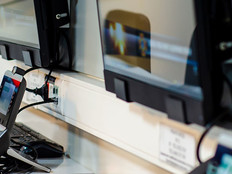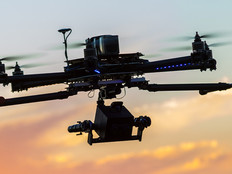Dallas Police Department to Test if Body Cameras Increase Trust in Officers
The Dallas Police Department plans to distribute body cameras to 200 officers starting this month. However, the department is not just providing officers with cameras; it’s also testing what effect the technology has on residents’ trust in the police.
Researchers at the Caruth Police Institute, which is affiliated with the department and the University of North Texas at Dallas, will question citizens who get pulled over or who call 911 about their experiences with officers, according to the Dallas Morning News. Researchers will ask how the officers behaved during the interaction, as well as how the experience affected confidence in police.
Melinda Schlager, director of Caruth, says the goal is to rebuild trust after a series of highly publicized police-involved deaths has corroded public confidence in law enforcement nationally. The Morning News reported that use of body cameras in Orlando, Florida, and Rialto, California, resulted in fewer citizen complaints citizens and less use of force by officers.
“The way we are going about learning about police legitimacy is totally unique,” Schlager told the Morning News. “It’s a very esoteric, theoretical concept, but it can be measured in some very practical ways.”
Investing in the Technology, Weighing the Costs
The Dallas Police Department could decide to buy more body cameras if the research shows that they are a sound investment, Schlager says. According to the Morning News, the department, which has around 3,500 officers, has paid for 400 body cameras, the first 200 of which will be distributed this month to officers who have received many citizen complaints and those who have asked for them.
Dallas has a $3.7 million, 5-year contract with Taser for data storage and 1,000 cameras, the report says.
The six-month trial will track 100 officers with body-worn cameras and 100 without, looking for differences in the number of complaints, commendations and uses of force, the Morning News reported. Additionally, researchers will make follow-up calls with citizens and conduct focus groups to help determine people’s feelings about the the police department and the use of cameras.
Dallas Police Chief David Brown told the Morning News he is excited about the study. The newspaper reported: “He expects the body cameras to reduce all categories of complaints and specifically keep the number of excessive force complaints low. Those have fallen more than 60 percent since 2009, a drop he attributes to improved training on realistic scenarios.”
“We suspect that it will have a significant impact,” Brown says of the deployment of cameras. “But we want to be able to measure it in a scholarly research study so that we can learn from it and our profession can continue to learn from it.”
Alex Piquero, a criminology professor at the University of Texas at Dallas, told the Morning News the main criticism of body cameras is that they are costly. Not only do police departments need to pay for the cameras themselves, but also data storage and staffing. Piquero says that the benefits of increased public trust and fewer uses of force by police area are difficult to quantify but could make the investment worthwhile.
Police Departments Explore Body Cameras
Police departments around the country have started to investigate the use of body cameras and some have started to use them and craft polciies around their use. StateTech reported in November that state legislators in Florida are proposing a bill that would require departments that deploy body cameras to put in place policies on best practices for their use.
Other departments are weighing the costs of deployments. Last year a report estimated that rolling out body cameras for the Baltimore Police Department would cost $5.5 million to $7.9 million in the first year alone, depending on the type of cameras and how many officers wear them.
There are many considerations police departments must take into account when considering investments in body cameras, including how to store footage, whether to invest in new digital evidence management systems and operation of pilot programs to evaluate their use.









